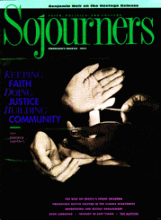I first heard of Silvio Rodriguez on a lonely afternoon in 1987 while in Mexico City. A young Mexican bohemian--clad in black beret, flowing poncho, and scruffy beard--had a blanket spread out in the Plaza de la Constitucion, peddling used cassettes by Silvio Rodriguez and Mercedes Sosa, books on Che and Fidel, and odd replicas of ancient Aztec sculpture. Noticing that I was unfamiliar with Latin American music, he urged me to try one of Silvio's tapes. Perhaps he thought that our similarity of taste in dress would carry over to our taste in music. He was right.
Mujeres, the Silvio Rodriguez cassette that I brought back to the United States with me (ignorant of the fact that the simple act of carrying a copy of music by a Cuban artist across the border meant I had single-handedly broken the U.S. economic blockade of Cuba!), changed the way that I thought about love, Latin America, and even life itself. The music was unabashedly romantic (though less in tune with the popular vision of romance than with that romance which I intuitively understood in my heart), deep and moving, and filled with the unfathomable mysteries of a life of love.
The recent release of Silvio's Canciones Urgentes, the first volume of a trilogy of Cuban music compiled by David Byrne and made possible by a recent law allowing limited "cultural" exchange with the island, provides the people of the United States with the first real opportunity to hear music that is already immensely well-known by young people throughout all of Latin America.
Read the Full Article

